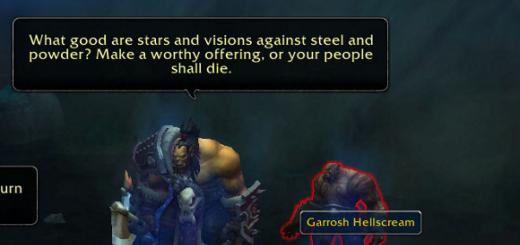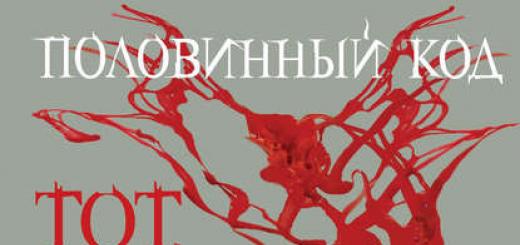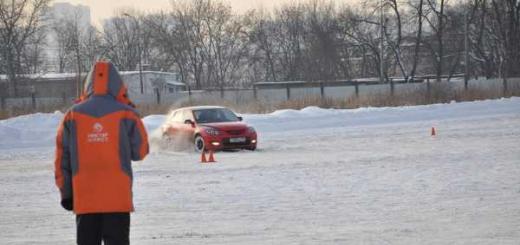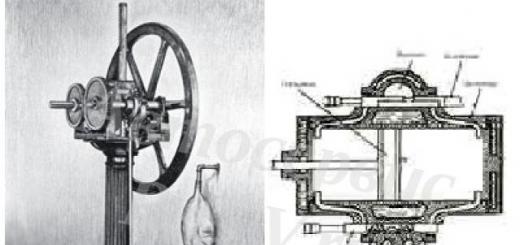When specialists in the history of the Soviet special services or retired agents are asked to name the most highly professional illegal intelligence agent, almost everyone names Nikolai Kuznetsov. Without questioning their competence in the least, let us ask ourselves: where does such unanimity come from?
Who is an illegal spy
The recruited agent lives in a country familiar to him since childhood. His documents are authentic, he does not need to strain to remember certain moments of his biography. Another thing is an abandoned scout-illegal immigrant. He lives in a country alien to him, whose language is rarely native to him, everyone around him recognizes him as a stranger. Therefore, an illegal immigrant always pretends to be a foreigner. A stranger is forgiven a lot: he can speak with an accent, not know local customs, get confused in geography. A scout thrown into Germany pretends to be a Baltic German; according to legend, an agent working in Brazil is a Hungarian, a scout living in New York according to documents, a Dane.
There is no greater danger for an illegal than to meet a “compatriot”. The slightest inaccuracy can be fatal. Suspicion will be caused by a pronunciation that does not correspond to the legend (as the natives of Lvov and Kharkov speak the same Ukrainian language in completely different ways), a mistake in gesture (the Germans, when ordering three mugs of beer, usually throw away their middle, index and thumb), ignorance of the national subculture (during the Arden operations of 1944-1945 the Americans split Skorzeny's saboteurs with the question "Who is Tarzan?").
It is simply impossible to predict all the subtleties of the legend: not a single reference book will write that Gretel, one of the many university laboratory assistants, is a local celebrity, and it is simply impossible not to know her. Therefore, every extra hour spent in the company of a “countryman” increases the risk of failure.
Yours among strangers
Nikolai Kuznetsov, communicating with the Germans, pretended to be a German. From October 1942 to the spring of 1944, for almost 16 months, he was in Rovno occupied by the Nazis, rotating in the same circle, constantly expanding the number of contacts. Kuznetsov not only portrayed a German, he became one, forcing himself to even think in German. The SD and the Gestapo became interested in Siebert only after evidence appeared that the chief lieutenant was involved in a series of terrorist attacks carried out in Rovno and Lvov. But Paul Siebert, as a German, never aroused suspicion in anyone. Language skills, knowledge of German culture, customs, behavior - everything was impeccable.
And all this despite the fact that Kuznetsov had never been to Germany and had never even left the USSR. And he worked in occupied Rovno, where every German is in plain sight, where the SD and the Gestapo are working to eliminate the underground, and almost everyone is under suspicion. No other intelligence officer could hold out in such conditions for so long, penetrate so deeply into the environment, acquire such significant connections. That is why the "fighters of the invisible front" unanimously call Kuznetsov an illegal intelligence officer No. 1.
Where did he come from?
Yes indeed, from where? For most, the biography of the famous intelligence officer begins with his appearance in the Medvedev detachment in October 1942. Up to this point, Kuznetsov's life is not just white spots, but a solid white field. But brilliant scouts do not appear out of nowhere, they are nurtured, prepared for a long time. Kuznetsov's path to the heights of professionalism was long and not always straightforward.
Nikolai Kuznetsov was born in the village of Zyryanka, Perm Province, in 1911 into a peasant family. There are no nobles or foreigners in his pedigree. Where the boy, born in the Permian outback, got the talent of a linguist is a mystery. The winds of the revolution threw Nina Avtokratova, who was educated in Switzerland, to a seven-year school in Talitsa. It was from her that Nikolai received his first German lessons.
But this was not enough for the boy. His friends were the local Austrian pharmacist Krause and the forester, a former prisoner German army, from which Kuznetsov picked up profanity, which is not found in any German textbook. In the library of the Talitsk Forestry College, where he studied, Nikolai discovered the Encyclopedia of Forestry in German and translated it into Russian.
Blows of fate
In 1929, Kuznetsov was accused of concealing his "White Guard-kulak origin." Now it is no longer possible to determine what kind of passions raged in the Talitsk technical school, what intrigues Kuznetsov was drawn into (his father was neither a fist nor a White Guard), but Nikolai was expelled from the technical school and from the Komsomol. The future scout was left with an incomplete secondary education for the rest of his life.
In 1930, Nikolai got a job in the land administration. Restored in the Komsomol. Having discovered that the authorities were engaged in theft, he reported this to the authorities. The robbers were given 5-8 years and 1 year for Kuznetsov - for the company, however, without imprisonment: the punishment was to supervise and withhold 15% of earnings (the Soviet government was harsh, but fair). Kuznetsov was again expelled from the Komsomol.
Freelance agent of the OGPU
As part of his service, Nikolai traveled around the remote villages of Komi, along the way he mastered the local language, and made many acquaintances. In June 1932, detective Ovchinnikov drew the attention of him, and Kuznetsov became a freelance agent of the OGPU.
Komi in the early 1930s was a place of exile for kulaks. Ardent Enemies Soviet power and the unjustly repressed fled to the taiga, gathered in gangs, shot postmen, tax workers, village correspondents - everyone who at least represented the authorities. Kuznetsov himself was also attacked. There were uprisings. The OGPU needed local agents. The forest surveyor Kuznetsov was engaged in the creation of an agent network and maintaining communication with it. Soon the higher authorities paid attention to him. The talented security officer was taken to Sverdlovsk.
At Uralmash
Since 1935, Kuznetsov has been a designer of the design bureau at Uralmash. Many foreign specialists, mostly Germans, worked at the plant. Not all foreigners who worked at the plant were friends of the USSR. Some of them defiantly expressed their sympathy for Hitler.
Kuznetsov moved among them, made acquaintances, exchanged records and books. The duty of the agent "Colonist" was to identify hidden agents among foreign specialists, to suppress attempts to recruit Soviet employees, to find among the Germans persons who were ready to cooperate with Soviet intelligence.
Along the way, Nikolai improved his German, learned the habits and demeanor characteristic of the Germans. Kuznetsov mastered six dialects of the German language, learned from the first phrases to determine which places the interlocutor was a native of, and immediately switched to his native German dialect, which simply delighted him. Learned Polish and Esperanto.
Not bypassed Kuznetsov and repression. In 1938, he was arrested and spent several months in prison, but his immediate curator managed to recapture his ward.
“He must be taken to Moscow!”
In 1938, one of the employees of the NKVD apparatus introduced a particularly valuable agent to a prominent Leningrad party official Zhuravlev, who arrived with an inspection in Komi: “He is bold, resourceful, initiative. He is fluent in German, Polish, Esperanto, and the Komi language. Exceptionally efficient."
Zhuravlev talked with Kuznetsov for several minutes and immediately called the deputy of the GUGB NKVD Raikhman: "Leonid Fedorovich, there is a man here - a particularly gifted agent, he must be taken to Moscow." At that moment, Reichman had a scout in his office, who had recently arrived from Germany; Reichman handed him the phone: "Talk." After several minutes of conversation in German, the intelligence officer asked: “Is this a call from Berlin?” Kuznetsov's fate was sealed.
Illegal in home country
When the head of the secret political department of the NKVD GUGB, Fedotov, saw the documents of Kuznetsov, who had arrived at his place, he clutched his head: two convictions! Twice expelled from the Komsomol! Yes, such a questionnaire is a direct road to prison, and not to the NKVD! But he also appreciated Kuznetsov's exceptional abilities and designed him as a "specially classified special agent", hiding his profile from the personnel officers behind seven locks in his personal safe.
To save Kuznetsov, they abandoned the procedure for conferring a title and issuing a certificate. The special agent was issued a Soviet passport in the name of Rudolf Wilhelmovich Schmidt, according to which the Chekist lived in Moscow. This is how the Soviet citizen Nikolai Kuznetsov was forced to hide in his native country.
Rudolf Schmidt
At the end of the 1930s, German delegations of various colorings were frequent in the USSR: trade, cultural, socio-political, etc. The NKVD understood that 3/4 of these delegations were scouts. Even as part of the Lufthansa crews, it was not beauty stewardesses that flew, but brave stewards with a military bearing, changing every 2-3 flights. (So the Luftwaffe navigators studied the areas of future flights.)
In the circle of this motley public, the “yearning for the Fatherland” Soviet German Schmidt revolved, imperceptibly finding out which of the Germans breathes with what, with whom he establishes contacts, whom he recruits. On his own initiative, Kuznetsov got hold of the uniform of a senior lieutenant of the Red Army Air Force and began to impersonate a test engineer of a closed Moscow plant. The perfect target for recruiting! But often a German agent who pecked at Schmidt himself became an object of recruitment and returned to Berlin already as an agent of the NKVD.
Kuznetsov-Schmidt made friends with diplomats, entered the entourage of the German naval attache in the USSR. Friendship with the frigate captain Norbert Baumbach ended with the opening of the latter's safe and photographing secret documents. Schmidt's frequent meetings with the German military attache Ernst Koestring allowed the security officers to install a wiretap in the diplomat's apartment.
self-taught
At the same time, Kuznetsov, who supplied the most valuable information, remained an illegal immigrant. All proposals of the management to send such a valuable employee to any courses Fedotov nipped in the bud, carefully hiding the "Schmidt" profile from prying eyes. Kuznetsov never took any courses. The basics of intelligence and conspiracy, recruitment, psychology, photography, driving a car, the German language and culture - in all areas Kuznetsov was 100% self-taught.
Kuznetsov was never a party member. The mere thought that Kuznetsov would have to tell his biography to the party bureau at the reception threw Fedotov into a cold sweat.
Scout Kuznetsov
With the outbreak of war, Kuznetsov was enrolled in the "Special Group under the NKVD of the USSR", headed by Sudoplatov. Nikolai was sent to one of the camps for German prisoners of war near Moscow, where he spent several weeks, climbing into the shoes of the German Lieutenant Paul Siebert. In the summer of 1942, Kuznetsov was sent to Dmitry Medvedev's detachment. In the capital of the Reichskommissariat, the city of Rovno, in exactly 16 months, Kuznetsov destroyed 11 senior officials of the occupation administration.
But do not perceive his work solely as a terrorist one. Kuznetsov's main task was to obtain intelligence. He was one of the first to report the impending offensive of the Nazis on Kursk Bulge, determined the exact location of Hitler's headquarters "Werwolf" near Vinnitsa. One of the Abwehr officers, who owed Siebert a large amount of money, promised to pay him off with Persian carpets, about which Kuznetsov reported to the center. In Moscow, the information was taken more than seriously: it was the first news about the preparation by the German special services of the operation "Long Jump" - the elimination of Stalin, Roosevelt and Churchill during the Tehran Conference.
Death and posthumous glory
Kuznetsov could not "hold on" forever. The SD and the Gestapo were already looking for a terrorist in the uniform of a German Oberleutnant. The officer of the Lvov headquarters of the air force, who was shot by him, managed to give the name of the shooter before his death: “Siebert”. A real hunt began for Kuznetsov. The scout and two of his comrades left the city and began to make their way to the front line. March 9, 1944 Nikolai Kuznetsov, Ivan Belov and Yan Kaminsky in the village. Boratin ran into a UPA detachment and died in battle.
N. Kuznetsov was buried on the Hill of Glory in Lvov. In 1984, a young city in the Rivne region was named after him. Monuments were erected to Nikolai Kuznetsov in Rovno, Lvov, Yekaterinburg, Tyumen, and Chelyabinsk. He became the first foreign intelligence officer to be awarded the title of Hero of the Soviet Union.
And the last, bitter
In June 1992, the authorities of Lvov decided to dismantle the monument to the Soviet intelligence officer. On the day of dismantling, the square was crowded. Many of those who came to the “closing” of the monument did not hide their tears.
Through the efforts of Kuznetsov's comrade Nikolai Strutinsky and former fighters of the Medvedev detachment, the Lviv monument was transported to the city of Talitsa, where Kuznetsov lived and studied, and installed in the central square of the city.
Among the outstanding Soviet intelligence officers, Nikolai Kuznetsov stands apart. Until now, many episodes are not even his professional activity, but simply lives remain completely unexplored or almost unexplored: the secrecy stamp interferes, or even simply the absence of any documents whatsoever. Wearing many different operational pseudonyms and false names, considered a nugget intelligence officer and turned out to be a professional agent first of counterintelligence, and then of NKVD intelligence, Nikolai Kuznetsov is more of a legend created by many researchers, historians and eyewitnesses. Although some facts from his life are known for sure, such as, for example, his date of birth is July 27, 1911.
Source: https://topwar.ru
1. Scout, son of a grenadier
Most of the official biographies of Nikolai Kuznetsov say that he was born into a peasant family in the village of Zyryanka, present-day Sverdlovsk Region. The family was considerable, five children: two daughters and three sons. According to the historian of the special services Teodor Gladkov, the father of the family, a prominent man, Ivan Pavlovich Kuznetsov, managed to serve his military service in the Russian army not just anywhere, but in a grenadier regiment in St. Nikolai Kuznetsov was also distinguished by shooting: a watch, a silver ruble and a mug with portraits of the emperor and empress. And when it reached Zyryanka, Ivan Kuznetsov went to the Reds, fought at Tukhachevsky and returned home barely alive from near Krasnoyarsk, where he caught typhus and was written off clean at the age of 45. The father died in 1927 from tuberculosis, after which the eldest son, who was not yet called Nikolai, took over the care of the family.

Source: https://www.eg.ru
2. Nikanor, Schmidt, Grachev and others
At birth, the future scout received the name Nikanor, and at home he was most often called Nika. But the eldest son of Ivan Kuznetsov did not like his own name, and in 1931 he changed it to the name Nikolai. After that, Nikolai Kuznetsov had a chance to wear many more nicknames, operational pseudonyms and other people's names. In Komi-Permyatsky autonomous region, where he moved in 1930 and where he later began to cooperate with the OGPU, he was given the pseudonyms "Kulik" and "Scientist". Working at Uralmash and being engaged in the operational development of German specialists, he bore the pseudonym "Colonist". In Moscow in the late 1930s, he received a passport in the name of Rudolf Schmidt - and under this name he became the most valuable agent of the NKVD counterintelligence, providing access to the most classified materials German diplomats. He went behind the front line with documents in the name of Lieutenant Paul Siebert, and in the partisan detachment "Winners" he was known as Pavel Grachev.

3. Twice expelled from the Komsomol
Before becoming the most valuable employee of the NKVD, Nikolai Kuznetsov managed to fly out of the Komsomol twice. The first time this happened was in 1929, when he was expelled as the son of a kulak. Even a certificate from the village council of Zyryanka did not help, which stated that his father lived exclusively by his labor and never traded in those meager fruits that he collected from his land. A year later, Kuznetsov managed to recover in the Komsomol, but not in Tyumen, where he studied at the agricultural technical school, but in Kudymkar (Komi-Permyatsky autonomous region), but again not for long. At the end of 1930, Nikolai was sentenced to a year of corrective labor after he informed the police about the postscripts of his colleagues in the forest management party, and was again expelled from the Komsomol. Kuznetsov no longer became a Komsomol member, and, interestingly, such a stain on his biography did not at all prevent the state security agencies from making him their agent - on the contrary, it often helped to gain confidence in the "anti-Soviet elements."

Source: https://t-i.ru
4. How Agent Kulik Appeared
Nikolai Kuznetsov began to cooperate with the OGPU in 1932 and at the same time received his first operational pseudonym. By this time, he had already managed to establish himself as a cold-blooded and productive participant in the Komi-Permyatsky district. Since this process was difficult and caused an aggressive reaction from the peasants, it sometimes came to attacks on groups of agitators - and it was during these incidents that Kuznetsov managed to show his best. The characteristic earned by him as a result led him to the Komi-Permyak district department of the OGPU, where he was already entrusted with participating in actions to eliminate the rebels, who had been hiding in the taiga until the early 1930s.

Source: https://www.ekburg.ru
5. How many languages did Kuznetsov know
Main foreign language, which made Kuznetsov a legendary intelligence officer, was German. Nikolai Ivanovich was fluent in six dialects of this language, primarily Berlin. As the legend goes, when they decided to secretly test him for knowledge of German, a professional illegal intelligence agent who spoke with Kuznetsov on the phone called his Berlin dialect innate. In addition, the future intelligence officer managed to independently study the Permian Komi language (and even wrote poetry in it), Esperanto (into which he translated Mikhail Lermontov's poem "Borodino"), as well as Polish and Ukrainian.

Source: https://livejournal.com
6. Denunciations of a special agent
Since 1939, Nikolai Kuznetsov, who managed to prove himself in operational work in the Komi-Permyak District and in Sverdlovsk, was transferred to central office NKVD in Moscow. According to the researchers of his biography, he had the unique status of a highly classified special agent with a salary of maintenance at the rate of a personnel detective of the central apparatus. At the same time, Kuznetsov was not formally an employee of counterintelligence agencies, which gave rise to dangerous incidents. He was repeatedly denounced as a person leading an anti-Soviet lifestyle and constantly communicating with foreigners (this was the main task of "Rudolf Schmidt"). In order not to reveal a valuable agent, the leadership of the NKVD imposed resolutions “Pay attention” to these initiative messages, that is, continue surveillance without any active actions.

Source: https://livejournal.com
7. From counterintelligence to intelligence
With the beginning of the possibility of "Rudolf Schmidt" as a counterintelligence officer leading the operational development of German diplomats and specialists, they were sharply reduced - and Nikolai Kuznetsov began to ask for the front. This was consistently denied to him until he received a call from the 4th Main Directorate of the NKVD from Pavel Sudoplatov. This department was responsible for organizing reconnaissance and sabotage work in the German rear, and the agent who spoke excellent German, whom all the Germans, without exception, mistook for their compatriot, was the most valuable employee for Sudoplatov. In January 1942, Kuznetsov began working in the 4th headquarters and soon became actively involved in preparations for being sent to the German rear.

Source: https://commons.wikimedia.org
8. How Paul Siebert ended up in a POW camp
Documents for the naturalization of the agent were chosen from among the papers of Wehrmacht officers who died during the Battle of Moscow. This is how Lieutenant Paul Siebert appeared, who was soon to go to operational work in Western Ukraine. But before sending Nikolai Kuznetsov to the rear, he was "put" for several months in a German prisoner of war camp near Krasnogorsk, so that he replenished his lexicon relevant military and "trench" vocabulary, learned to freely navigate the peculiarities of the relationship between different branches of the German army and its special services, as well as in order to check how well he manages to play the role German officer. Paul Siebert passed this peculiar exam without a single mistake, after which he was transferred to a saboteur training base near Moscow, where he mastered parachuting and pistol shooting: being a well-aimed rifle shooter, Kuznetsov did not use short-barreled weapons very well.

Meeting "Rudolf Schmidt" with the secretary of the Slovak embassy Geza-Ladislav Krno, a German intelligence agent. Operational photography with a hidden camera, 1940
A brilliant intelligence officer, a polyglot, a conqueror of hearts and a great adventurer, he personally destroyed 11 Nazi generals, but was killed by UPA fighters.
Linguistic talent
A boy from the village of Zyryanka with four hundred inhabitants masters the German language perfectly thanks to highly qualified teachers. Later, Kolya Kuznetsov picks up profanity when meeting a forester - a German, a former soldier of the Austrian-Hungarian army. Studying Esperanto on his own, he translated his beloved “Borodino” into it, and while studying at a technical school, he translated the German “Encyclopedia of Forest Science” into Russian, at the same time he perfectly mastered Polish, Ukrainian and Komi. The Spaniards, who served in the forests near Rovno in the Medvedev detachment, suddenly became worried, reported to the commander: "Fighter Grachev understands when we speak our native language." And this was Kuznetsov's understanding of a previously unfamiliar language. He mastered six dialects of German and, meeting somewhere at a table with their officer, instantly determined where he came from, and switched to another dialect.
pre-war years
After studying for a year at the Tyumen Agricultural College, Nikolai dropped out due to the death of his father and a year later continued his studies at the Talitsky Forestry College. Later he worked as an assistant to the tax collector for the arrangement of local forests, where he reported on colleagues involved in registration. Twice he was expelled from the Komsomol - on charges of "White Guard-kulak origin" during his studies and for denunciation of colleagues, but already with a conviction to a year of corrective labor. He was fired from Uralmashzavod for absenteeism. Kuznetsov's biography was not full of facts that represented him as a trustworthy citizen, but his constant penchant for adventurism, his curiosity and hyperactivity became ideal qualities for working as an intelligence officer. A young Siberian with a classic “Aryan” appearance, who spoke German perfectly, was noticed by the local NKVD administration and in 1939 was sent to the capital to study.
Affairs of the Heart
According to one of the leaders of Soviet intelligence, Nikolai Ivanovich was the lover of most of the prima ballet of the Moscow ballet, moreover, "he shared some of them with German diplomats in the interests of business." Back in Kudymkar, Kuznetsov married a local nurse, Elena Chugaeva, but, leaving the Perm Territory, he broke up with his wife three months after the marriage, without filing a divorce. Love with the socialite Ksana did not work out in the 1940s due to a wary attitude towards the Germans, because Nikolai was already part of the legend and introduced himself to the lady of the heart as Rudolf Schmidt. Despite the abundance of connections, this novel remained the most important in the history of the hero - already in the partisan detachment, Kuznetsov asked Medvedev: "Here is the address, if I die, be sure to tell the truth about me to Ksana." And Medvedev, already a Hero of the Soviet Union, after the war found this very Ksana in the center of Moscow, carried out the will of Kuznetsov.
Kuznetsov and UPA
Over the past ten years, a number of articles have appeared in Ukraine that sought to discredit the famous intelligence officer. The essence of the accusations against him is the same - he fought not with the Germans, but with the Ukrainian OUN rebels, members of the UPA and the like. Archival material refutes these claims. For example, the already mentioned submission to the title of Hero of the Soviet Union with an attached petition to the Presidium of the Supreme Soviet of the USSR, signed by the head of the 4th Directorate of the NKGB Pavel Sudoplatov. The justification for the award refers to the elimination of eight high-ranking German military officials by Kuznetsov, the organization of an illegal residency, and not a word about the fight against any Ukrainian independents. Of course, the Medvedevs, including Kuznetsov, had to fight against the detachments of Ukrainian nationalists, but only as allies of the Nazi occupation regime and its special services. The outstanding intelligence officer Nikolai Kuznetsov died at the hands of the OUN.
Doom
German patrols were aware of the search for Gautman in the regions of Western Ukraine. In March 1944, UPA fighters broke into the house of the village of Boratin, which served as a refuge for Kuznetsov and his associates - Ivan Belov and Yan Kaminsky. Belov was hit with a bayonet at the entrance. For some time, under guard, they waited for the commander of the rebels, centurion Chernogora. He identified in the "German" the performer of high-profile terrorist attacks against the Nazi bosses. And then Kuznetsov blew up a grenade in a room filled with UPA fighters. Kaminsky made an attempt to escape, but he was overtaken by a bullet. The bodies were loaded onto the horse-drawn carriage of Golubovich's neighbor Spiridon Gromyak, taken out of the village and, having dug up the snow, laid the remains near the old stream, covered with brushwood.
Posthumous glory
A week after the tragic clash, the Germans who entered the village found the remains of a soldier in the Wehrmacht uniform and reburied them. Local residents subsequently showed the place of reburial to employees of the Lviv KGB M. Rubtsov and Dziuba. Strutinsky achieved the reburial of the alleged remains of Kuznetsov in Lviv on the Hill of Glory on July 27, 1960. The memory of one of the heroes of the war that shook the whole world and brought liberation from the brown fascist plague that flooded Europe with a dirty stream will remain in the milestones of history. Nikolai Kuznetsov was right when one day, discussing the cases of the people's avengers at a partisan fire, he said: “If after the war we talk about what and how we did it, they will hardly believe it. Yes, I myself, perhaps, would not have believed it if I had not been a participant in these cases.
Movie hero
Many believe that the famous film "The Feat of the Scout" directed by Boris Barnet tells about the fate of Nikolai Kuznetsov. In fact, the idea for the film came up even before the hero began working under the name of Rudolf Schmidt. The script of the film was changed many times, some facts really were a narrative of the events of his service, for example, the episode with the abduction of Kuhn was written from a similar abduction of General Ilgen by Kuznetsov. And yet, most of the plots of the picture were based on the collective image of the heroes of the war, the film reflected facts from the biographies of other scouts. Subsequently, two feature films directly about Nikolai Kuznetsov were staged at the Sverdlovsk film studio: Strong in Spirit (in 1967) and Detachment special purpose"(in 1987), but they did not gain such popularity as the "Feat of the Scout".
On March 9, 1944, three men in Wehrmacht uniforms appeared near the village of Boratin, in the Brodovsky district of the Lviv region of Ukraine. Despite the fact that near the village there was a group of armed men in Soviet uniform, the "Germans" decided to enter the village. After all, these were by no means Wehrmacht soldiers, but Soviet intelligence agents Nikolai Kuznetsov, Ivan Belov and Yan Kaminsky.
The commander of the group Nikolai Kuznetsov, seeing people in the Soviet military uniform, decided that if these were really Red Army soldiers, then there would be no problems - he would explain who he was and why in German uniform. If the armed people are Bandera, then there is nothing to be afraid of either, the uniform and knowledge of the German language will save.
Nikolai Kuznetsov, who commanded the reconnaissance group, was one of the most prominent, as they would say now "cool" Soviet military intelligence officers. Despite his age, and Kuznetsov was 32 years old, he had a very large and non-trivial biography behind him. In the life of Kuznetsov, there were expulsions from the Komsomol and participation in collectivization, a court sentence to corrective labor and cooperation with the NKVD.
A native of the village of Zyryanka in the Perm province, Kuznetsov was born in 1911 and was named Nikanor, and Nikolai took the name only at the age of twenty. In 1926, Kuznetsov graduated from a seven-year school and entered the agronomic department of the Tyumen Agricultural College. There he joined the Komsomol, but then, due to the death of his father, he was forced to return to the village.
In 1927, he was restored at the Talitsky Forestry College, during his studies he began to study German on his own and mastered it at a free level. Over time, by the way, Kuznetsov learned not only the literary German language, but also six dialects of the German language, Polish and Ukrainian languages, Esperanto and Komi-Permyak language.
In 1929, Kuznetsov was expelled from the Komsomol and expelled from the technical school for his "White Guard-kulak origin". Despite this, he got a job as an assistant taxman for scaffolding. local importance in Kudymkar. He again recovered at the technical school, but they did not give him the opportunity to defend his diploma, limiting himself to a certificate of attendance and the disciplines he listened to at the technical school.
Working as an assistant taxman, Kuznetsov showed his civic duty for the first time - he informed the police that his colleagues were doing registration. As a result, the colleagues of the young tax driver were arrested and convicted, but Kuznetsov himself did not fare well - he received a year of corrective labor with a deduction of 15% of his salary and was again expelled from the Komsomol.
Seemed like a start life path forever puts an end to any service in law enforcement agencies, especially in the state security agencies. But it was in the early 1930s that Kuznetsov's life took a rather sharp turn. Returning from logging, Kuznetsov got a job at Mnogopromsoyuz as secretary of the price bureau, then at the Red Hammer promartel. It was at this time that he began to take part in raids on villages for collectivization. And then the OGPU drew attention to him.
First of all, the state security officers were interested not so much in fearlessness young man how much fluency in the Komi-Permyak language. Nikolai was involved in operations to eliminate bandit-insurgent formations operating in the forests. So Kuznetsov began to participate for the first time in counter-partisan activities, which had much in common with his subsequent intelligence activities. Little information has been preserved about that period of Nikolai Kuznetsov's life - both due to the specifics of the young man's work as a secret agent, and due to the fact that his official occupations were simple, he did not hold any high posts.
In 1934, Kuznetsov got a job in Sverdlovsk - first as a statistician, then as a draftsman, and in 1935 as a shopkeeper in the design bureau at Uralmashzavod. There he began to conduct operational development of foreign specialists, but this did not prevent the emergence of new problems - first he was fired from the factory for absenteeism, and then arrested and spent several months in prison.
Nevertheless, in the spring of 1938, Kuznetsov ended up in the Komi ASSR as a specialist in forestry under the People's Commissar of the NKVD of the Komi ASSR M.I. Zhuravlev. It was Zhuravlev who ultimately called Moscow - personally to the head of the counterintelligence department of the GUGB NKVD of the USSR Leonid Raikhman. Kuznetsov was given a recommendation to the central apparatus of the NKVD as a special valuable agent.
Of course, with such a biography, another person could not dream of working in the NKVD - exclusion from the Komsomol, from a technical school, a criminal record, absenteeism from work. But Kuznetsov was hired as a top-secret special agent with a salary of upkeep at the rate of a personnel operational authorized secret political department. He received a Soviet-style passport in the name of the German Rudolf Wilhelmovich Schmidt.

Since 1938, Kuznetsov began to carry out special assignments in the diplomatic environment of Moscow. He worked with foreign diplomats, recruited many of them, participated in the interception of diplomatic mail. Kuznetsov helped open the safe and take pictures of valuable documents in the apartment of the German naval attaché, frigate-captain Norbert Wilhelm Baumbach. Later, Kuznetsov was able to infiltrate the inner circle of the German military attaché, Ernst Köstring. The impeccable knowledge of the German language left no doubts before Kuznetsov's interlocutors - they really were a real German.
After Hitler's Germany attacked in 1941 Soviet Union, there was a need for large-scale reconnaissance and sabotage activities behind enemy lines. For this purpose, a Special Group was created under the People's Commissar of Internal Affairs of the USSR "under the leadership of Senior Major of State Security Pavel Sudoplatov. In January 1942, the 4th Directorate of the NKVD was created on the basis of the group. Nikolai Kuznetsov continued to serve in it and received a "legend" - he is allegedly a German lieutenant Paul Wilhelm Siebert.
In the winter of 1942, Kuznetsov was transferred to a camp for German prisoners of war in Krasnogorsk. There he studied the life of the Wehrmacht, and then underwent special parachute training. In the summer of 1942, Nikolai Kuznetsov, under the name "Grachev", was sent to the special-purpose detachment "Winners", which was based in the vicinity of the occupied city of Rovno. 
There Kuznetsov, legalized under the name of a German officer Siebert, began to impersonate a Gestapo officer. He communicated with officers of the German army, administration officials and passed on the information received to the partisans. On February 7, 1943, Kuznetsov personally captured Major Gahan, the courier of the Reichskommissar of Ukraine. It was this operation that made it possible to establish that 8 km from Vinnitsa, the bunker of Adolf Hitler "Werwolf" was created and equipped. These were the scale of Kuznetsov's activities as a secret agent.
But since terror was still designated as the main activity of Kuznetsov, he began to attempt the physical destruction of German officials and military leaders. The main goal of Kuznetsov was the assassination of the Reichskommissar of Ukraine, Erich Koch. But both attempts - on April 20, 1943 during a military parade and in the summer of 1943 during a personal reception - did not take place. It was not possible to get close to Alfred Rosenberg, who visited these places on June 5, 1943.
Nevertheless, on September 20, 1943, Kuznetsov killed Koch's deputy for finance, Hans Gel, and his secretary Winter. It was an erroneous attempt - in fact, Kuznetsov was supposed to eliminate the head of the administration of the Reichskommissariat, Paul Dargel. On September 30, 10 days after the murder of Gel and Winter, Kuznetsov blew up Dargel with an anti-tank grenade. The “target” nevertheless suffered very seriously - Dargel lost both legs and was taken to Germany.
In November 1943, Kuznetsov managed to capture the commander of the eastern battalions, Major General Max Ilgen, and Koch's driver, Paul Granau. As a result, Ilgen, who could not be taken to Moscow, was shot by partisans on one of the farms in the vicinity of Rovno.

Kuznetsov's last "liquidation" operation in Rovno was the assassination of the head of the legal department of the Reichskommissariat of Ukraine, Oberführer SA Alfred Funk. He was killed on November 16, 1943. In January 1944, Colonel Medvedev, who commanded the Pobediteli special forces detachment, in which Kuznetsov also acted, ordered the latter, along with scouts Belov and Kaminsky, to advance to Lvov - behind the retreating German troops. In Lvov, Kuznetsov and his subordinates cracked down on Otto Bauer, head of the government of the Galicia district, and Heinrich Schneider, head of the office of the government of the General Government.
The list of German generals and officials killed by Kuznetsov or with his direct participation is impressive. The most surprising thing is that Kuznetsov remained invulnerable to the German special services, although they staged a real hunt for partisans. Nevertheless, by the beginning of 1944, the Gestapo had already managed to spread information about a Soviet saboteur posing as Hauptmann Siebert of the German army. And Kuznetsov, along with Belov and Kaminsky, had to leave Lvov to go beyond the front line.
On February 12, 1944, eighteen kilometers from Lvov, Kuznetsov was stopped by a Feljandarmerie patrol. And the Soviet intelligence officer had to eliminate the major who commanded the patrol. Then the saboteurs managed to escape, but in early March they encountered a detachment of Bandera. The latter already knew that in front of them were no Wehrmacht soldiers, but a disguised Soviet reconnaissance and sabotage group.
Bandera wanted to capture Kuznetsov alive, but the scouts gave their last fight. According to some reports, they were killed, according to others, they blew themselves up with grenades. Kuznetsov's burial was discovered only in 1959, and the appearance of the scout was restored by skull specialists.
For many sincere opponents of fascism, Kuznetsov's life has always remained a true example of selfless service to his homeland. A little more than a year "wasn't enough" for Kuznetsov until the end of the war. And he, who spent the most difficult months and years of the Great Patriotic War behind enemy lines, died a heroic death. Naturally, in Soviet times, the memory of Nikolai Kuznetsov was immortalized. He became a posthumous Hero of the Soviet Union, streets were named after him, monuments were erected to him. More than a dozen books were published about Kuznetsov's activities, at least six films were shot.
However, as soon as the Soviet Union "cracked at the seams", numerous haters of the Soviet intelligence officer in Ukraine immediately showed up. In 1992, monuments to Nikolai Kuznetsov were liquidated in Lvov and Rovno; on April 14, 2015, after the Maidan, the monument to Kuznetsov was demolished in the village of Povcha, Rivne region. In the same 2015, the name of Nikolai Kuznetsov was included in the special "List of persons falling under the "Law on decommunization"". Thus, any memory of Nikolai Kuznetsov should be erased from all geographical names of Ukraine, monuments to him should be liquidated.
Another thing is Russia. Here, the memory of the outstanding Soviet intelligence officer is preserved to this day. And now, and not only in Soviet times, objects named after the legendary intelligence officer appear on the map of our country and its cities. For example, in 2011, a park in Stary Oskol received the name of Kuznetsov. Now, against the backdrop of a difficult international situation, Kuznetsov's example is again relevant for those people who serve in the armed forces and other power structures of our country and are ready, if necessary, to risk their lives for the interests of Russia and its people.
The legendary Soviet intelligence officer Nikolai Kuznetsov was born in 1911 in a family of ordinary peasants. The family was large - six souls of children. They lived in the village of Zyryanka near the city ...
The legendary Soviet intelligence officer Nikolai Kuznetsov was born in 1911 in a family of ordinary peasants. The family was large - six souls of children. They lived in the village of Zyryanka near the city of Perm. The real name of the scout, given at baptism, is Nikanor.
After the seven-year school, the boy first went to study at the College of Agriculture, but then changed his mind and went to gnaw the granite of science at the Forestry College. He knew German well before, but now he decided to take it more seriously. It should be noted that the ability to languages showed up from childhood. He made acquaintance with a certain German forester, from whom he "infected" with a penchant for the German language. A little later, Nikolai began to study Esperanto, and achieved great success, even translated Mikhail Lermontov's Borodino into it. Kuznetsov also found a rare book "Encyclopedia of Forest Science" in the library of the forest technical school and translated it from German for the first time.
Then the young polyglot mastered very quickly and soon the Polish, Komi-Permyak and Ukrainian languages. German Nicholas learned so much that he knew six dialects. In 1930, Kuznetsov got a job in the land administration. There, his colleagues committed a number of thefts, and since the material liability was joint and several, Nikolai was sentenced for one year for the company. It should be noted that having discovered the machinations of his colleagues, the guy himself reported this to the police.
After serving the prescribed year in a corrective labor colony, Kuznetsov went to work in an industrial artel. He had to help in forced collectivization, so the affected peasants attacked the future intelligence officer more than once. And the way Kuznetsov acted in crisis situations, and even his excellent knowledge of the local dialects of the Komi-Permyaks, made it possible to notice his abilities as state security figures. Soon he began to be involved in the work of the OGPU to destroy groups of bandits in the forests.
In the spring of 1938, Nikolai Kuznetsov was already listed as an assistant to the people's commissar from the NKVD M. Zhuravlev. And this Soviet chief called the NKVD department in Moscow and gave Kuznetsov a recommendation, pointing out that he was a very talented and courageous employee. The head of counterintelligence, L. Raikhman, accepted this attention, although Nikolai had a criminal record. As a result, P. Fedotov accepted Nikolai Kuznetsov as a secret special agent under personal responsibility and did not lose.

Kuznetsov was corrected with new documents under a different name - Rudolf Schmidt. First of all, he had to become his own in the circle of foreign diplomats in Moscow. Nikolai Ivanovich quickly and easily made acquaintances among foreign figures, attended social events and successfully collected information for the NKVD. He also successfully completed the most important task - he recruited several foreigners, convincing them to work for the USSR. Nikolai Kuznetsov worked especially carefully with German agents. To this end, he was introduced as a test engineer at an aircraft factory in Moscow, as he worked there a large number of German specialists. Among them were Western spies. There, Kuznetsov also intercepted information from diplomats' mail.
When did the Great Patriotic War, Nikolai Ivanovich was assigned to the NKVD department, which specialized in reconnaissance and sabotage behind enemy lines. For a long time, Kuznetsov trained and prepared, studying the manners, characters and typical features for the Germans in the camp among captured fascists. After this thorough preparation, having received a document in the name of Paul Siebert, the scout was sent to the rear of the enemy. At first, he worked secretly in the city of Rovno, where the main headquarters of the Nazis in Ukraine was located. Every day he interacted with high officials among the Nazis and the local ruling elite. All valuable information was broadcast to the partisan formations located in this region.

One of the most important achievements of intelligence officer Kuznetsov was the capture of a German major, a courier who carried a secret map in his bag. After interrogating the captured major, and looking at the map, Soviet troops received information that a shelter for Hitler himself was built a few kilometers from Vinnitsa. Also in the fall of 1943, a secret agent was able to kidnap an important fascist general, who was sent to Rovno to organize reprisals against local partisans.
In his capacity as Paul Siebert, Kuznetsov's last business was to assassinate a major Nazi leader in the Ukraine, Oberführer Alfred Funk. Having interrogated this German "bump", Nikolai Kuznetsov received valuable information about the upcoming plan for the elimination of the heads of the "Big Three" at a conference in Tehran. At the beginning of 1944, the Russian special agent was ordered to depart with the retreating Nazis to Lvov and continue to carry out sabotage. There he was given several assistants. In Lvov, Nikolai Kuznetsov organized the liquidation of several key figures in the camp of the Nazis.
In the spring of 1944, the Nazis already realized that they were satisfied with various sabotage by the Soviet intelligence officer. Kuznetsov was identified and his description was sent to all patrols in Western Ukraine. Seeing this state of affairs, the scout and his two assistants decided to make their way into the forests and join the partisan movement or, if possible, go behind the front line. In the first days of March, having already approached the front line, the special agents stumbled upon the troops of the Ukrainian rebels. A battle ensued, and in a firefight that broke out, all three Soviet intelligence officers were shot dead. Later Soviet historians determined the approximate burial place of Nikolai Ivanovich and the hero was reburied in the city of Lvov, on the Hill of Glory.
Soviet writer Dmitry Medvedev in the late 1940s created books dedicated to the activities of Nikolai Kuznetsov. They were called "It was near Rovno" and "Strong in spirit", and after their release, the entire Soviet Union learned about the heroic intelligence officer. Dmitry Medvedev himself during the events described was the commander of the partisans with whom Kuznetsov worked, and therefore spoke about him firsthand.
In subsequent years, about fifteen novels and short stories were created on the subject of the biography and exploits of Nikolai Kuznetsov. Now there are already about ten films about the legendary intelligence officer, including film adaptations literary works. The most outstanding film is The Feat of the Scout (directed by Boris Barnet, 1947).
In addition, several monuments were dedicated to Nikolai Kuznetsov in Soviet times and museums named after him were opened.










